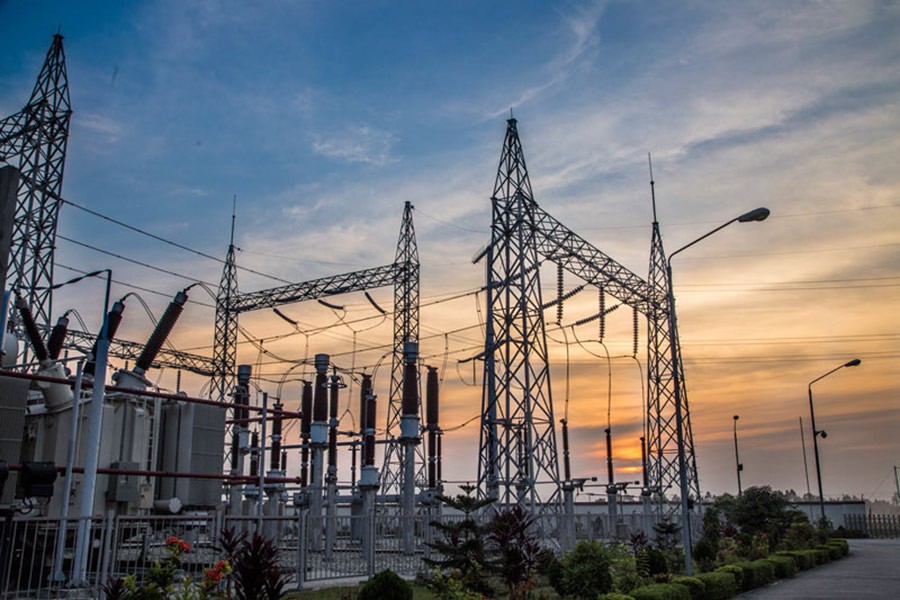The country's overall electricity generation cost started rising significantly from November 2017 amid escalating oil prices in the international market, as the power production is heavily dependent on 'expensive' oil-fired power plants.
The cost might soar further, as the oil prices in the international market maintains an uptrend following the latest unrest in global politics over the 'Jerusalem capital' issue, market insiders have predicted.
The government's over-reliance on the oil-fired power plants instead of the low-cost ones to raise the country's overall electricity generation over the past several years has now proved 'wrong,' experts have said.
The country now has a total of 43 oil-fired power plants having the total generation capacity of 3,313 megawatts (MW), which is around 41 per cent of the currently available generation of around 8,000 MW, according to statistics from BPDB.
Of them a total of 34 plants with a total generation capacity of 2,567 MW are furnace oil-fired, and the remaining nine with a total capacity of 846 MW are diesel-based plants.
The share of oil-fired power plants in the country's overall electricity generation is set to rise further next year, a senior official of state-run Bangladesh Power Development Board (BPDB) told the FE.
It will happen, as the cabinet committee on government purchase in August approved awarding of 10 more oil-fired power plants to generate around 1,768 MW of electricity by mid-2018. These include several 'high-cost' diesel-run plants, he added.
The price of brent crude, the benchmark in international oil price, climbed up to nearly $ 66 per barrel on Tuesday from $ 47 in June 2017 and below $ 30 in early 2016.
The government had launched a drive to install a significant number of oil-fired rental and quick-rental power plants under private sector from 2009 as a 'short-term' solution to a nagging countrywide electricity crisis.
The government also awarded the private sector sponsors several gas-fired power plants, to be set up on rental basis.
Most of these power plants were awarded on the basis of unsolicited offers under the Speedy Supply of Power and Energy (Special Provision) Act 2010. The law has a provision of giving immunity to people, who are involved with the quick-fix remedies.
The government also allowed the private sector entrepreneurs duty-free import of furnace oil to run their power plants with 9.0 per cent service charge along with import cost as an incentive, said a senior official of Power Division under Ministry of Power, Energy and Mineral Resources.
Alongside the rental power plants the government also had a plan to install a number of big peaking power plants as 'mid-term' and 'long-term' measures.
Power Division also had planned to retire the rental and quick-rental power plants after expiry of their initial tenures and bring down the electricity tariffs as well.
But, instead of retiring the 'expensive' power plants, the government continued extending their tenures and installed more such plants afresh with the capacity-payment provision intact in the order, the BPDB official said.
For a lack of monitoring and supervision from the government, the mid-term power plants 'failed' to come up, he also said.
As a consequence, the electricity tariffs for retail-level consumers have been hiked eight times, with the latest one effective from December 1, almost doubling these from the previous rates, instead of reducing those as per the government's initial plan.
Bangladesh Energy Regulatory Commission (BERC) hiked the latest electricity tariff, predicting that the brent crude oil price would hover around $ 55 during 2018, said a senior official.
But the oil price has already increased by 18.18 per cent over the BERC's projection, on which it had ordered the latest power tariff hike on November 23, the official added.
"The government had awarded the oil-fired power plants to resolve the electricity crisis. But this ad-hoc and emergency crisis solution mechanism has now turned into a new crisis," energy adviser of Consumers' Association of Bangladesh (CAB) Prof M Shamsul Alam told the FE on Tuesday.
Electricity tariffs continued to rise over the past several years as an outcome of the government's 'wrong' policy, which is not at all 'acceptable', he added.
Although this government is completing two consecutive tenures in power, it is still in 'crisis-management' mood for power sector, said Prof Ijaz Hossain of Bangladesh University of Engineering and Technology (BUET).
It seems that the government has little interest to increase electricity generation from the low-cost power plants, he further said, terming the government policy a 'failure.'


